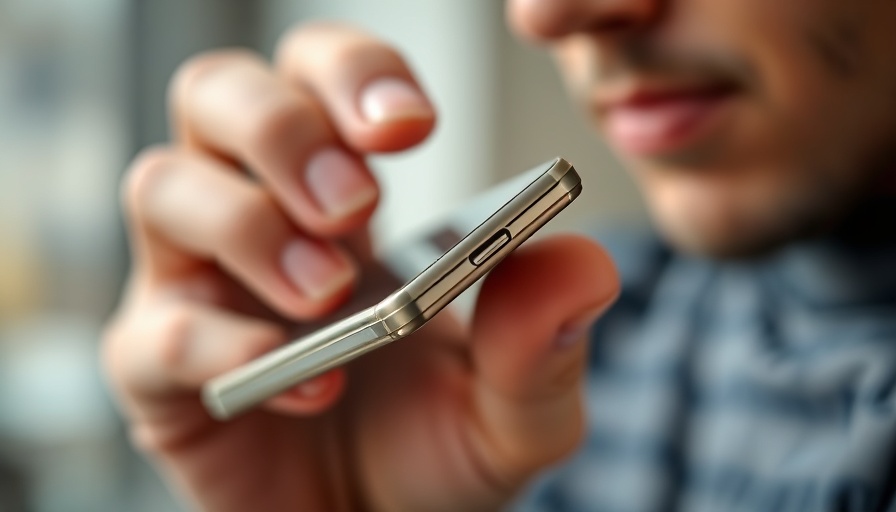
Unpacking the Honor Magic V5: The Future of Folding Phones
The Honor Magic V5 is being hailed as the world’s thinnest folding phone, but does its design sacrifice durability for aesthetics? With a slim profile that measures just 4.1 mm when unfolded, it teeters on the edge of innovation and practicality. Honor claims the device is built to endure, with tests demonstrating it can handle a weight of 200 lb without faltering. However, the question remains: can consumers trust a folding phone's durability as much as they do with traditional slab phones?
In 'Have They Gone Too Far?', the discussion revolves around the Honor Magic V5 and its implications for the future of folding phones. Let's explore its features and the potential impact on smartphone technology.
A Leap in Technology: But at What Cost?
The advancements in folding phone technology, especially with the Magic V5, mark a substantial leap forward. In a market increasingly saturated with slab devices, the shift towards foldable screens can be likened to the transition between flip phones and the slate style model we know today. Yet with this innovation comes concern about what truly defines 'strength.' As phones continue to integrate functionality like larger displays and multitasking capabilities, these benefits could come at the expense of perceived reliability. Are consumers ready to embrace this new era of design, or is the fear of fragile technology holding them back?
Durability Defies Logic: Can the Honor Magic V5 Survive?
Despite its paper-thin design, the hinge and screen have shown remarkable resilience during stress tests. This durability might not only attract tech enthusiasts but could position the Magic V5 as a viable competitor against traditional phones. When put through real-life usage scenarios—like holding it while multitasking or using it as a handheld entertainment device—the Magic V5 needs to prove its strength consistently to quell skeptics. This new model also boasts features like a high-resolution display and pronounced stereo sound that enhance the user experience. But will users feel the same confidence making this their everyday device compared to a traditional phone?
Versatility and Impressive Specs: The Allure of the Magic V5
The Honor Magic V5 is impressively equipped with a Snapdragon 8 Elite chipset and packs 16 GB of RAM. These specs ensure that it performs well even under heavy multitasking, allowing for seamless transitions between tasks. Moreover, it has incorporated stylus support—a first in the foldable category. With a robust battery life of 5820 mAh and support for 66W charging, users won't find themselves tethered to a wall socket.
Ease of Use: Bridging the Gap Between Foldable and Traditional
One of the most significant benefits of using the Honor Magic V5 is its design, which closely resembles that of traditional slab devices. When folded, it claims a thickness equivalent to a typical smartphone, blurring the lines between the two styles. This makes the transition from a conventional phone to a foldable phone smoother. Users can enjoy features like robust multitasking and the ability to watch videos on a larger screen while also keeping the feel of a conventional phone.
Cross-Platform Connectivity: A Game-Changer?
Another noteworthy aspect is the Magic V5's inclusion of cross-platform file sharing via Honor Share, empowering users to connect with other operating systems. This cross-connectivity could redefine how users perceive the compatibility of devices. But, will this feature significantly sway user preference towards foldable phones, or do traditional users find satisfaction in their existing devices?
Conclusion: Innovation or Gimmick?
The unveiling of the Honor Magic V5 brings forth exciting possibilities in phone design, but it also prompts essential questions about durability and user trust. With its cutting-edge technology, sleek profile, and impressive versatility, it represents a fascinating New Wave of mobile devices. Yet only time will tell if consumers are willing to embrace this innovation, especially regarding the perceived reliability of folding devices. The question on everyone's mind remains: have they indeed gone too far or paved the way for the future of smartphones?
 Add Row
Add Row  Add
Add 




Write A Comment